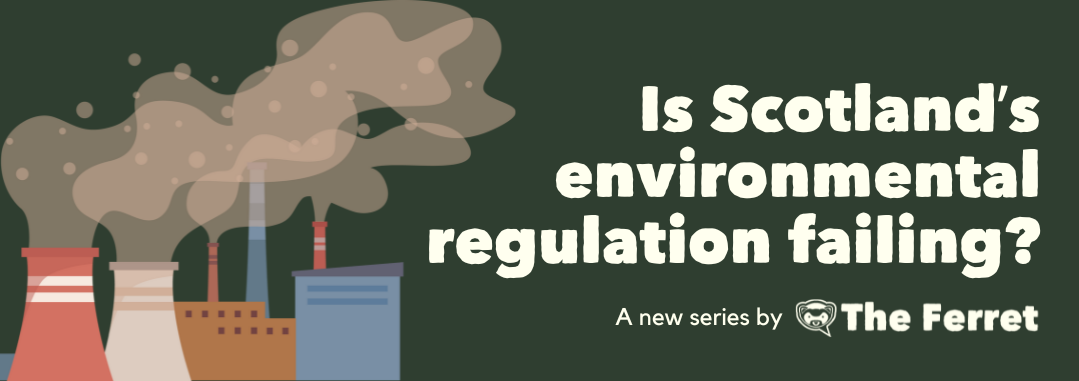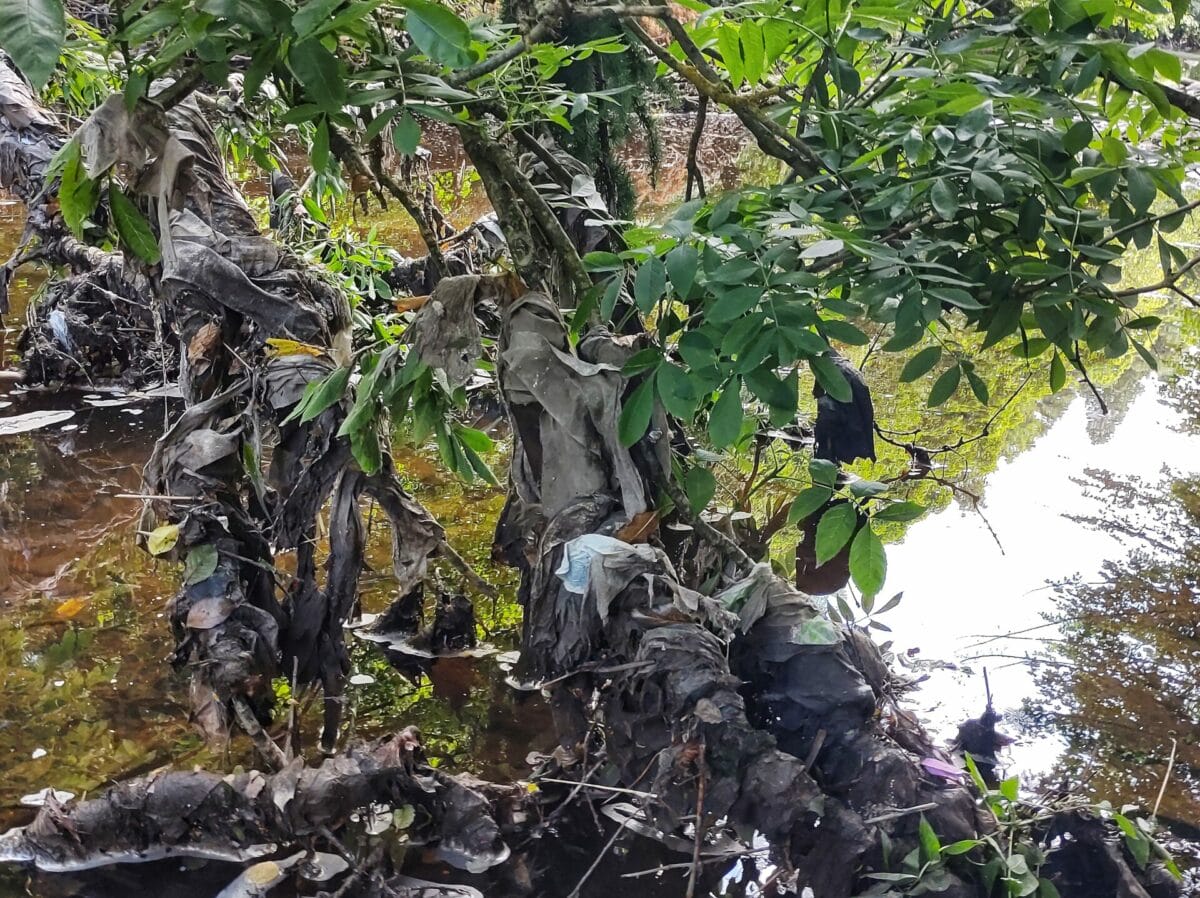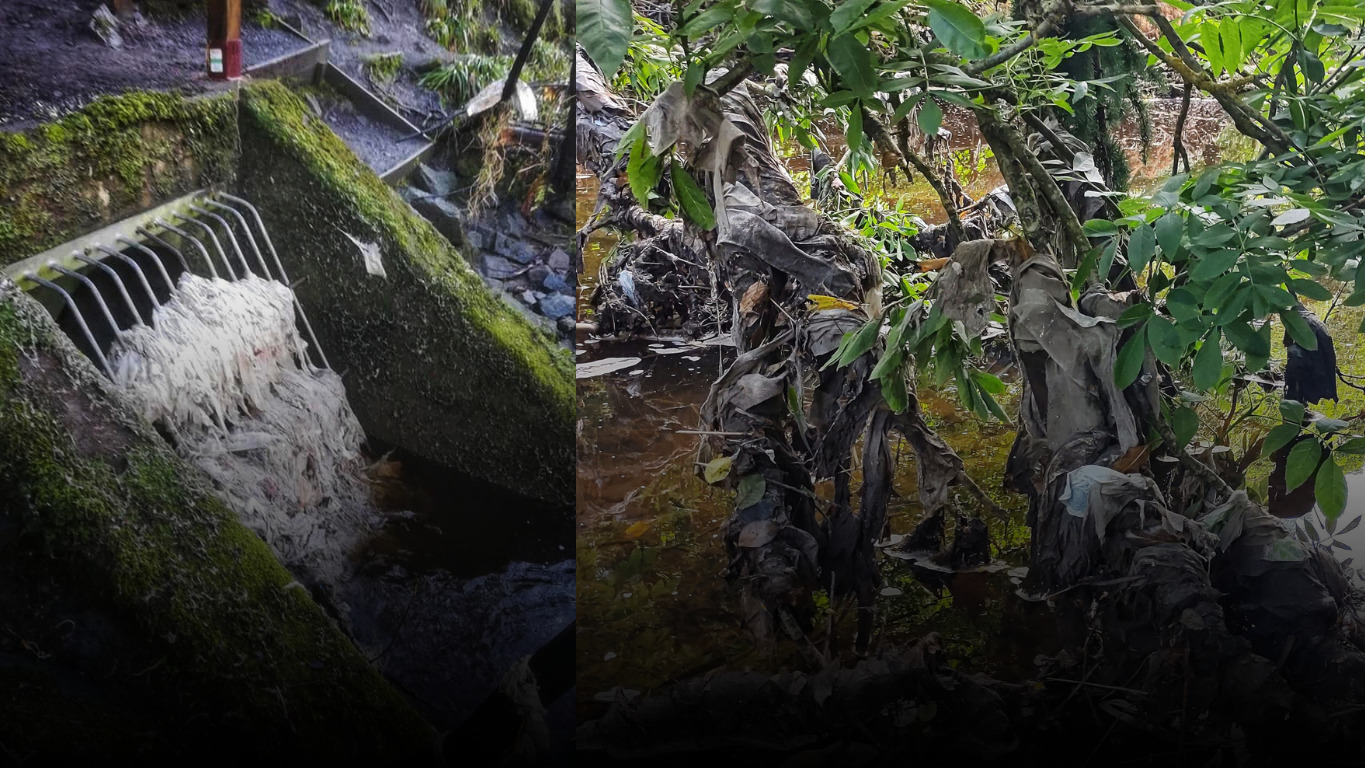
The Scottish Environment Protection Agency (Sepa) is under scrutiny by a new government standards watchdog for allegedly failing to stop sewage polluting a river in West Lothian.
Environmental Standards Scotland (ESS), set up after Brexit in 2021, is examining a complaint that Sepa broke the law by not preventing discharges from sewage works into the River Almond.
Campaigners said it was “outrageous” and “deeply worrying” that the public was not being protected from environmental health threats. Sepa must be forced to take action and the river cleaned up, they demanded.
The Ferret is investigating the role of Sepa as the Scottish Government’s major environmental watchdog, following growing concern from readers. We are publishing a series of stories exposing its record on tackling pollution, transparency, and funding.
In July 2023 we revealed Sepa had slashed its legal enforcement actions almost threefold over the last seven years, prompting accusations it had turned a “blind eye” to pollution. In May 2023 Sepa was accused of being “asleep on the job” after a pollution incident in the River Dee, near Banchory. Campaigners warned that wild salmon were being put at risk.
The Ferret also reported in October 2022 that Sepa was under fire for allowing Fisherrow Sands, near Musselburgh, to be polluted with sewage for ten years. Sepa said that “significant improvements” had been made.
The River Almond – the site of the most recent alleged failure – starts near Shotts in Lanarkshire, and goes through West Lothian to join the Firth of Forth at Cramond in Edinburgh. It flows past Harthill, Whitburn, and Blackburn, through Livingston, and skirts Edinburgh airport.
The Ferret reported in April 2021 that sewage overflowed into the river 501 times in 2019. The discharges came from four sewage works at Newbridge, Blackburn, Whitburn and East Calder.
According to local residents, wet wipes and sanitary waste have been strewn across the river. Water has been discoloured and there’s been “foaming and fungus”, they said.
Glossary
Sepa
Sepa is the Scottish Government’s environmental regulator. It’s responsible for the health of Scotland’s natural environment and for ensuring businesses don’t break rules on pollution.
Environmental Standards Scotland (ESS)
Environmental Standards Scotland monitors how well environmental law in Scotland works, and ensures other public sector bodies comply with it. It was set up by the Scottish Government in 2021 to replace European Union scrutiny of environmental law in Scotland.
Environmental Rights Centre for Scotland (ERCS)
ERCS is a campaign group which aims to use the law to improve protection of Scotland’s environment.
Statutory duty
Statutory duties are laws that a government organisation, like Sepa, must obey.
In December 2022 the Environmental Rights Centre for Scotland (ERCS), which campaigns for environmental justice, filed a formal complaint to ESS. ESS was set up by the Scottish Government to regulate environmental standards in the wake of the UK’s departure from the European Union.
ERCS argued that Sepa was in breach of three statutory duties that it should uphold: to enforce pollution regulations, to conserve wildlife and to protect the water environment.
According to ERCS, Sepa failed to take action against the polluter to deter further incidents. “Sepa do not appear to have taken any formal enforcement action resulting in a fine or any other punishment to hold the polluter to account for the alleged pollution incidents,” it said.
ESS is now considering the complaint. “We are looking at what is required of Sepa when it receives reports of pollution and how it enforces wastewater treatment works licence conditions,” an ESS spokesperson told The Ferret.
“We have approached Sepa with a view to achieving informal resolution, the details of which will be published on our website upon the conclusion of our work.”

Sewage pollution ‘putting public health at risk’
ERCS accused Sepa of a “clear dereliction of their legal duties” to safeguard the environment. “It’s outrageous that communities are being let down by the public authorities tasked with protecting them from the ongoing scandal of sewage pollution,” said policy officer, Benjamin Brown.
“It is deeply worrying that communities have to wait six months for ESS to act on threats to their health and the natural environment.”
The River Almond Action Group warned that wildlife and public health were being put at risk. “When sewage is discharged at the volumes we are seeing in the Almond it causes discolouration, foaming and fungus – not to mention wet wipes and sanitary waste strewn across the river and beaches,” said the local group’s Pippa Scott.
“It’s been left to local residents to raise these issues in an attempt to hold the polluters to account. It’s far too often community members clearing wet wipes and sanitary debris out of the river.”
Scott urged Sepa to urgently begin enforcement action to hold polluters to account. “Remedial work must be carried out to clean existing sewage debris and any other sewage related damage to the environment, “ she said. “The sewage pollution of Scottish waters must stop.”
Sepa defended its record, however, insisting that waterways across Scotland were cleaner than ever, with 87 per cent rated as good or better. It said it was supporting ESS’s review of how water pollution regulations are enforced.
Sepa’s target was to ensure that 92 per cent of Scotland’s waters were in a good or better condition by 2027. “We’re committed to drive improvement,” said Sepa’s water chief, Nathan Critchlow-Watton.
“We continue to engage with the River Almond water quality improvement group and take an active approach to reducing pollution incidents and delivering significant environmental improvements in the Almond catchment.”
The sewage works along the River Almond are managed by Veolia for Scottish Water. “In the River Almond, our works perform as designed and are well maintained,” said a Scottish Water spokesperson.
“We have been working to try and reduce the amount of sewage related debris in the environment, with regular litter picks and a local campaign in Livingston and East Calder urging people not to flush wipes and sanitary products down the loo.”
Scottish Water stressed it “worked closely” with the River Almond Action Group, meeting with them quarterly. “We are committed to protecting and enhancing Scotland’s water environment,” added the spokesperson.
“Our programme will further improve water quality, significantly reduce the risk of sewage related debris such as wet wipes being released and reduce sewer network spills from combined sewer overflows.
“Less than one per cent of what is spilled under licence during heavy rainfall is actually sewage from toilets. The vast majority is run-off from roads and roofs as well as grey water from household appliances etc.”
The Ferret’s investigation into the Scottish Environment Protection Agency has been supported by members of the Environmental Funders Network, a UK-based network of foundations and donors supporting environmental causes. The Ferret maintains complete editorial control.
If you want to find out more about how we fund our investigations, check out our transparency page.
Cover images thanks to River Almond Action Group.














